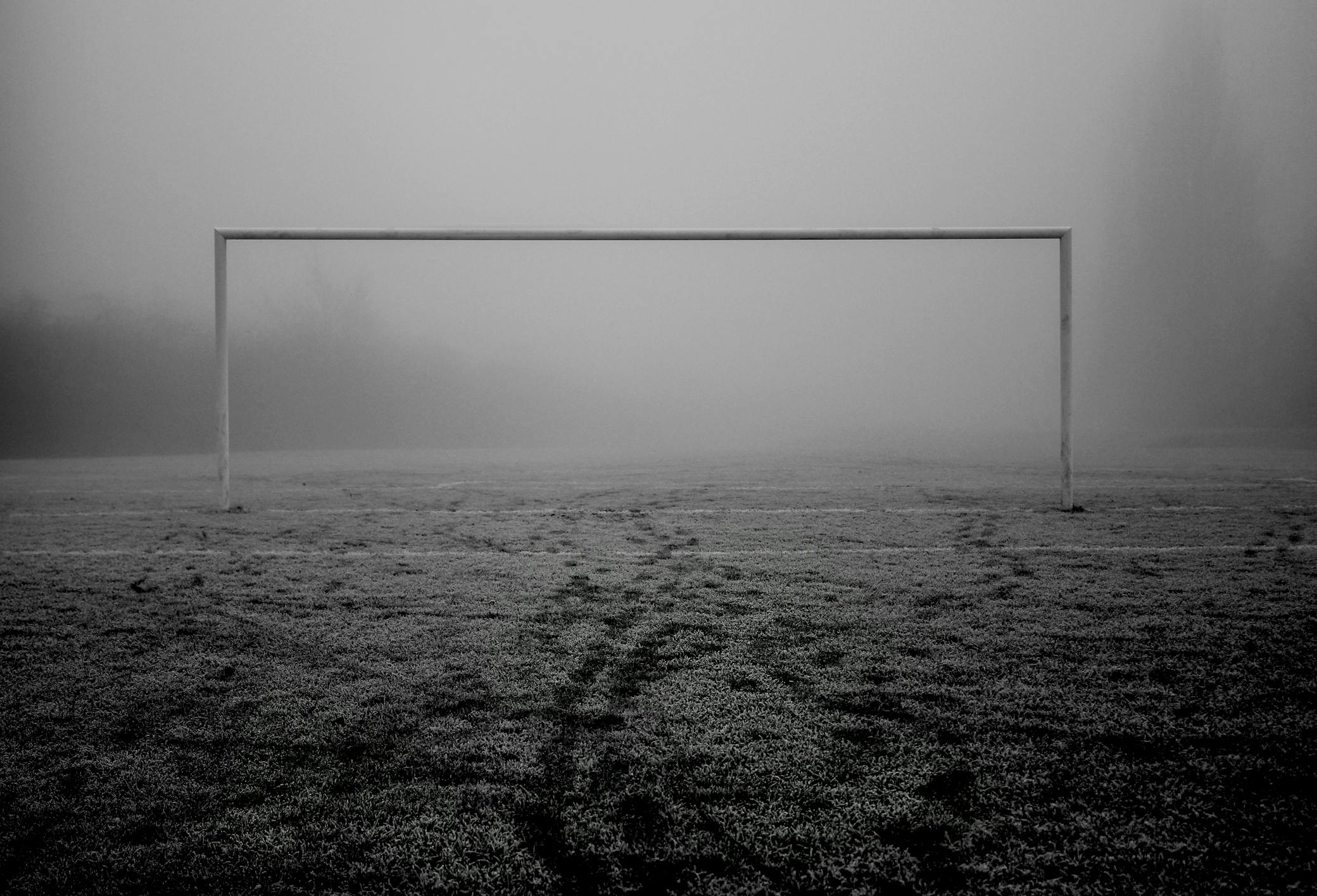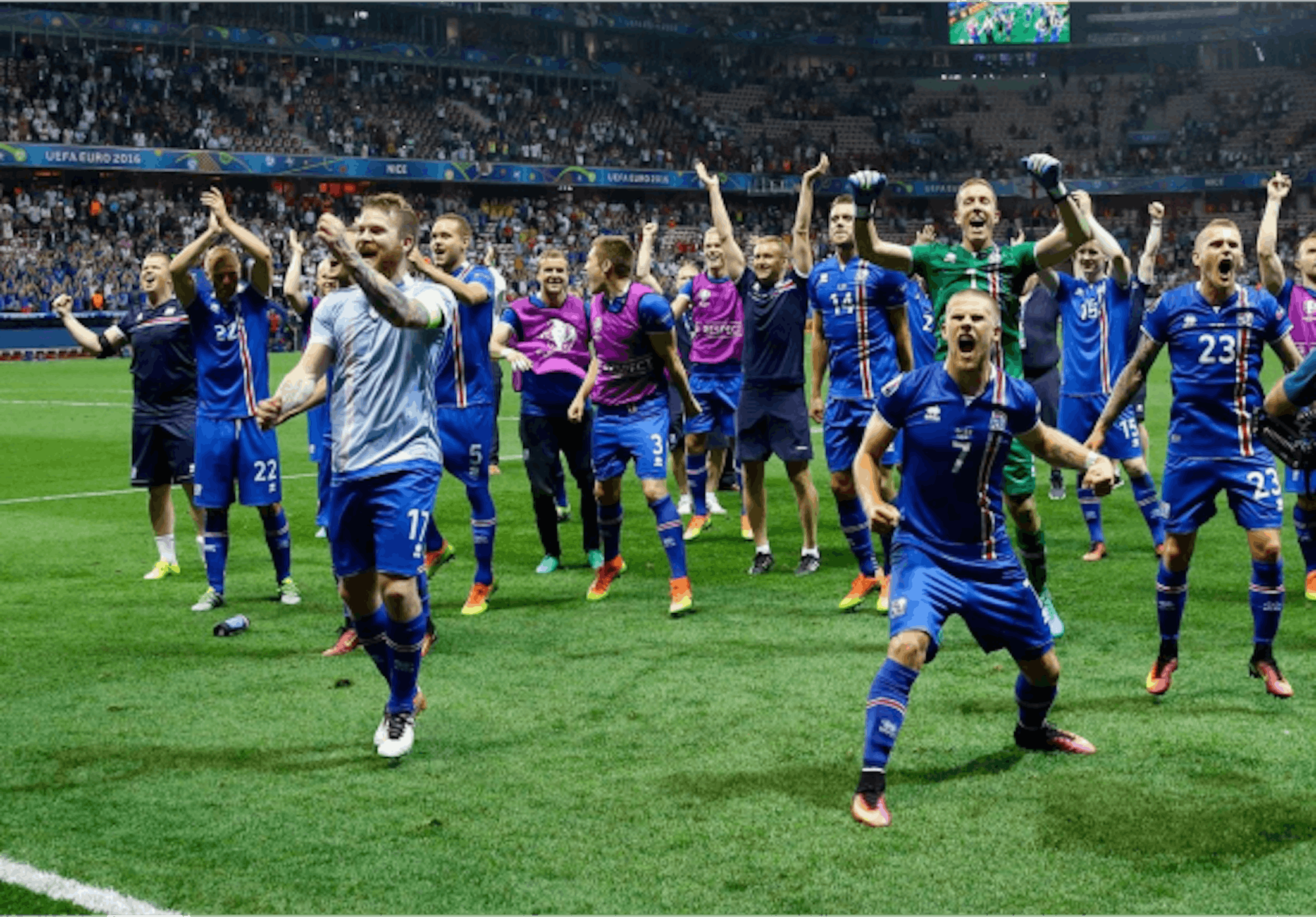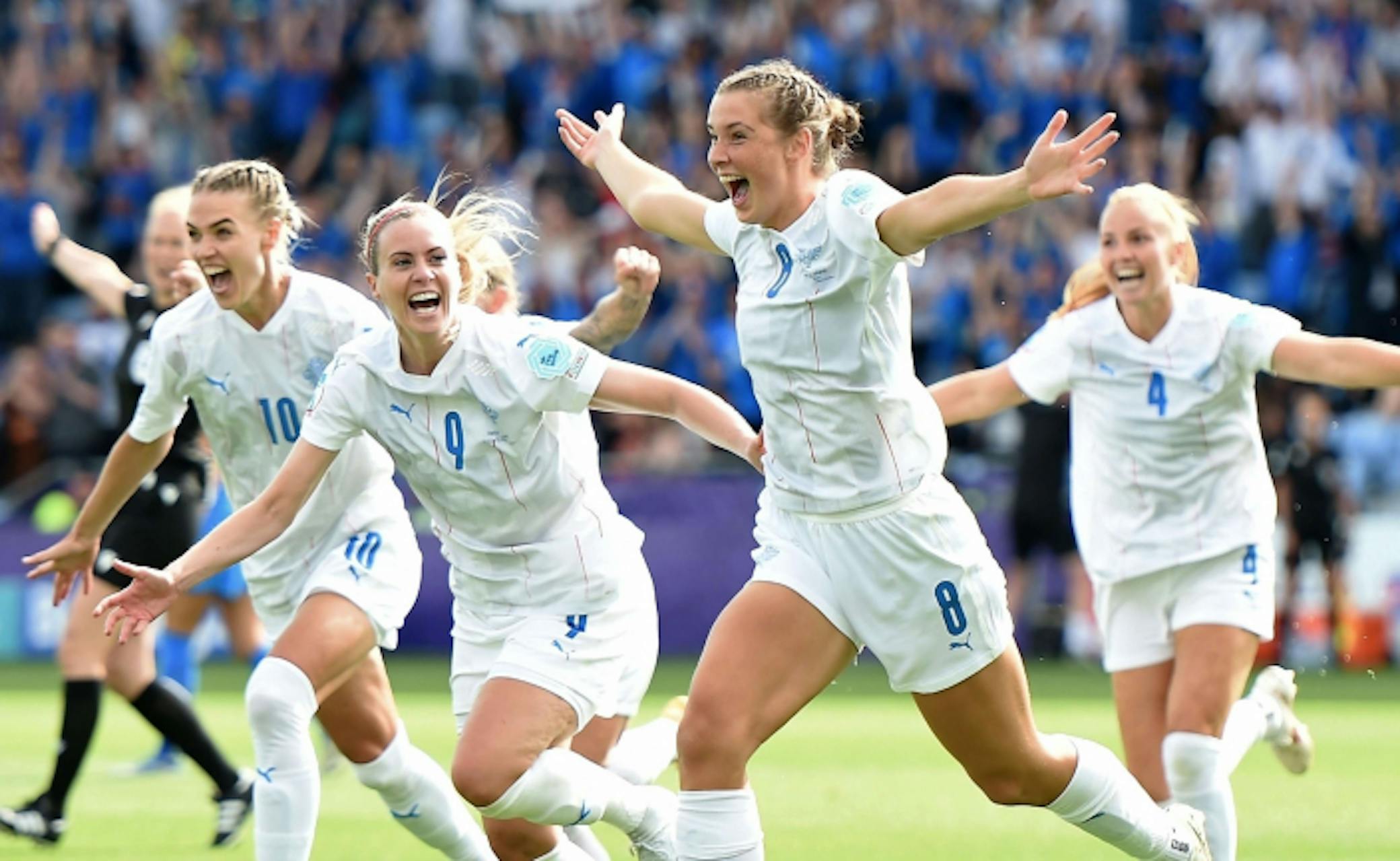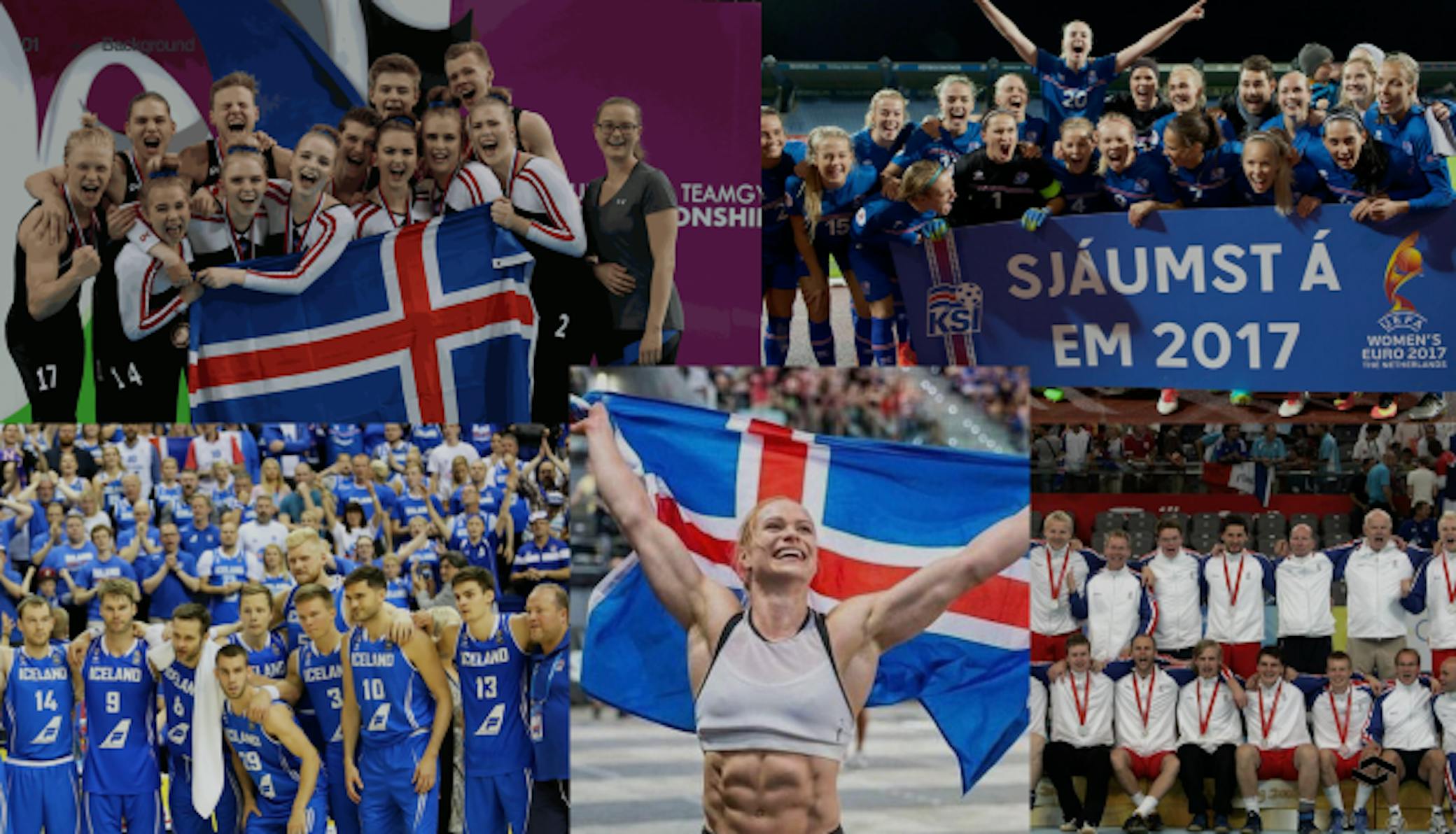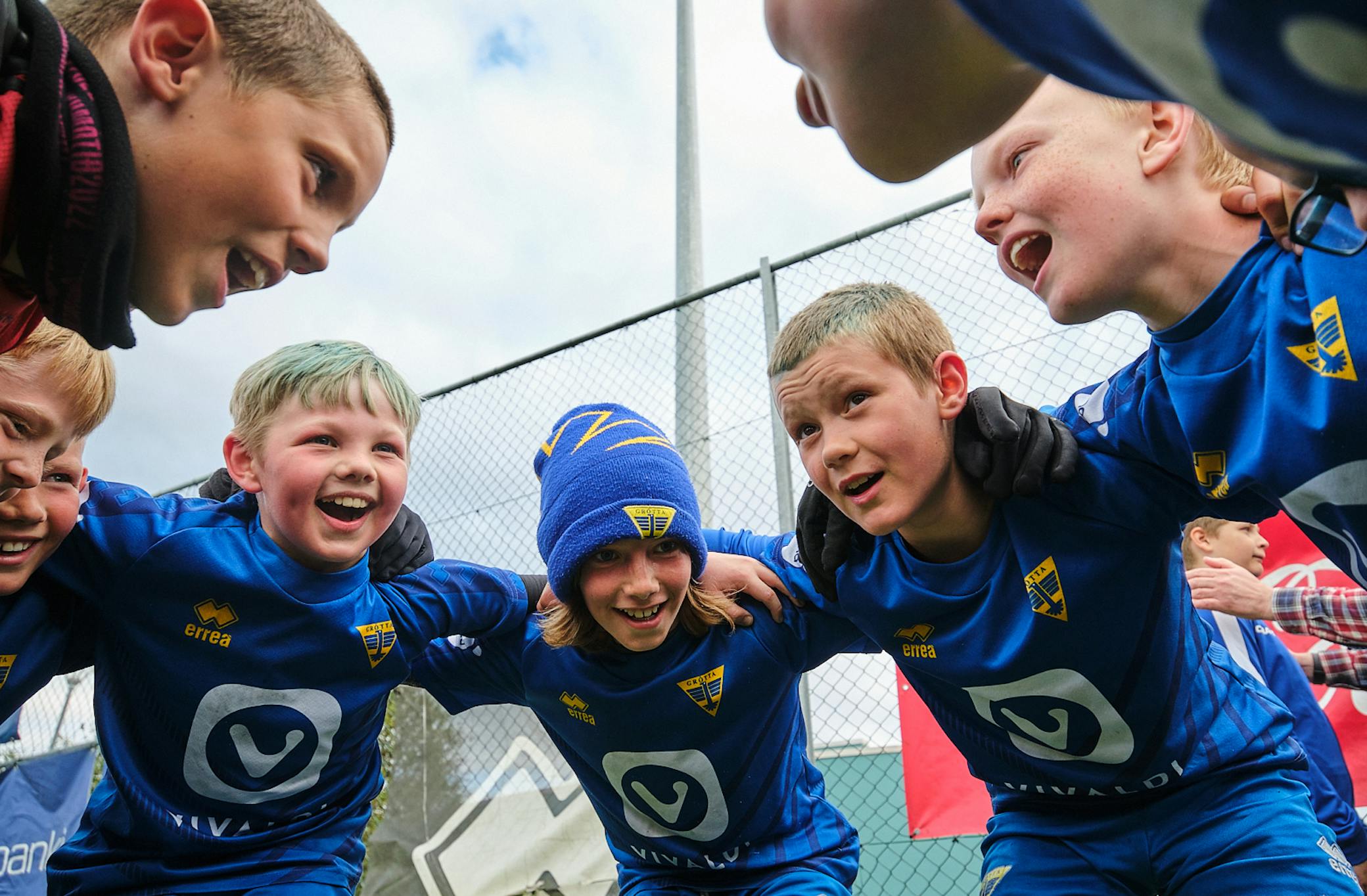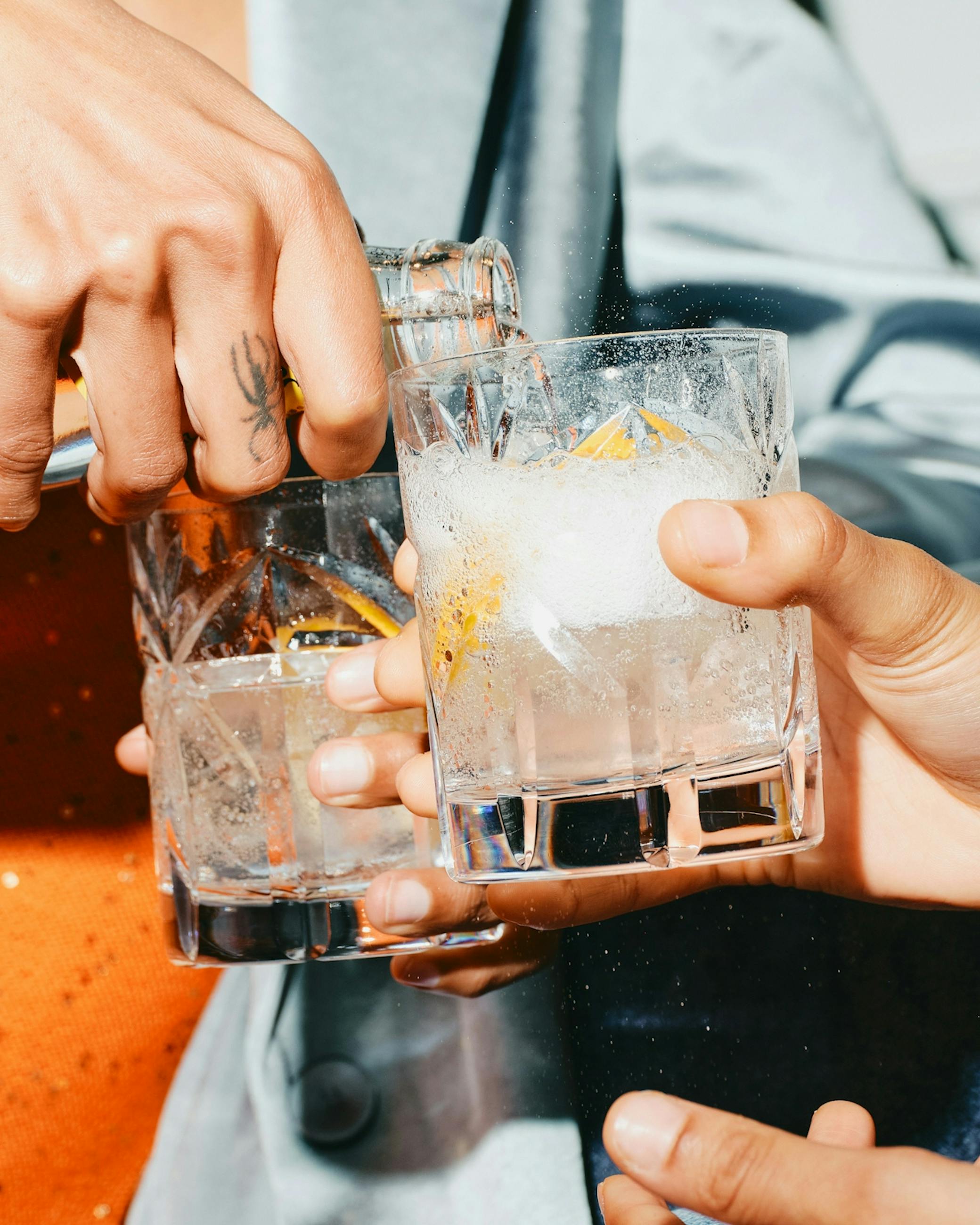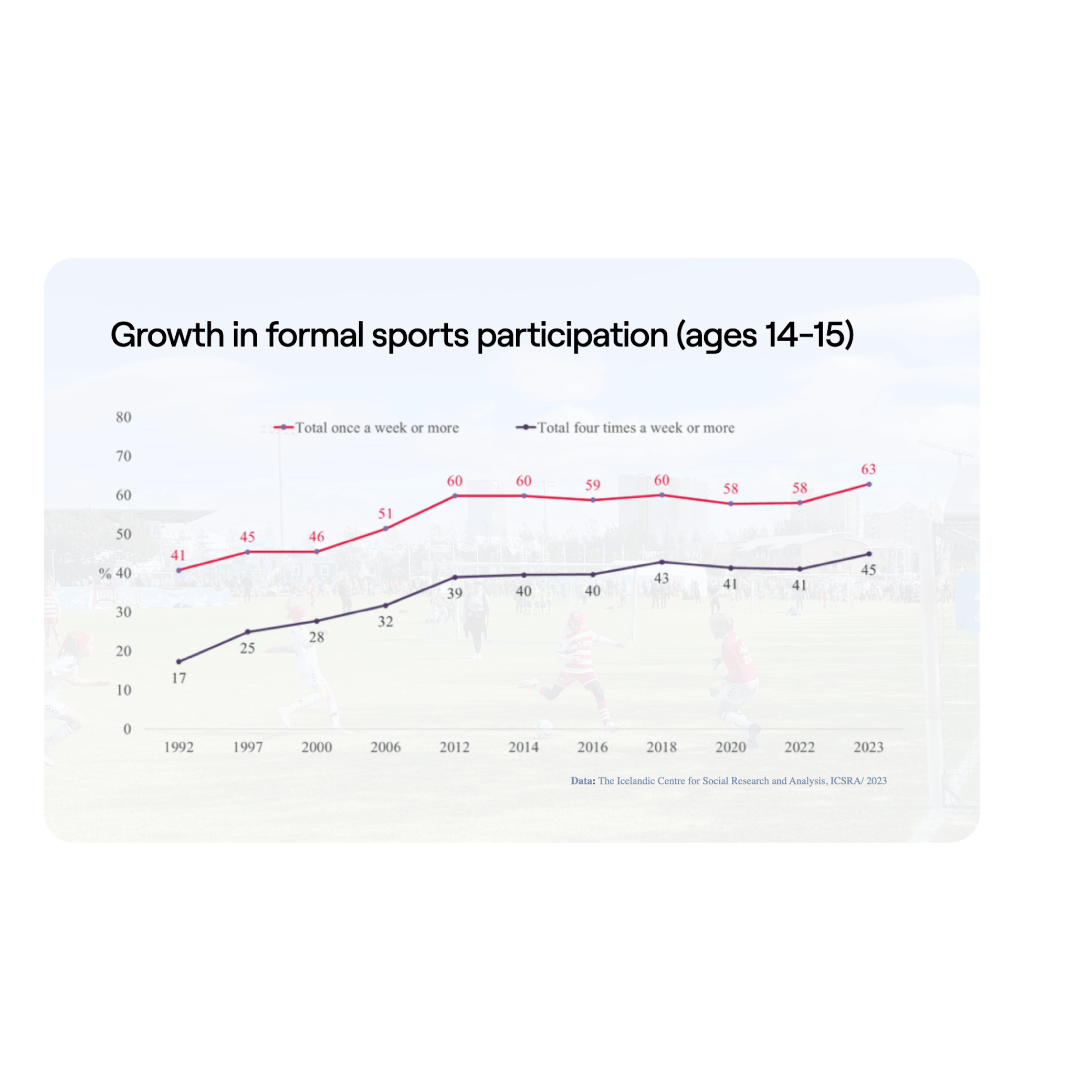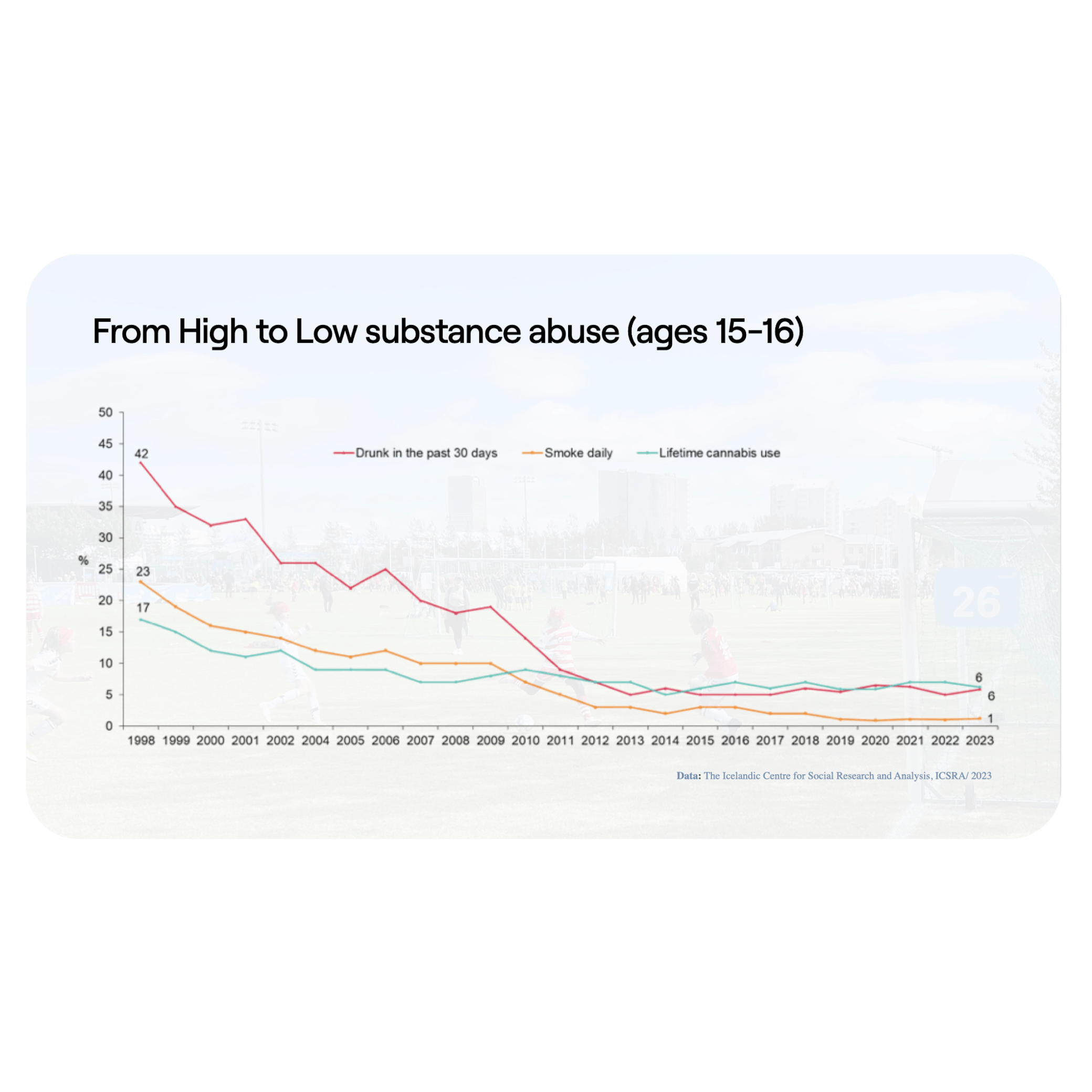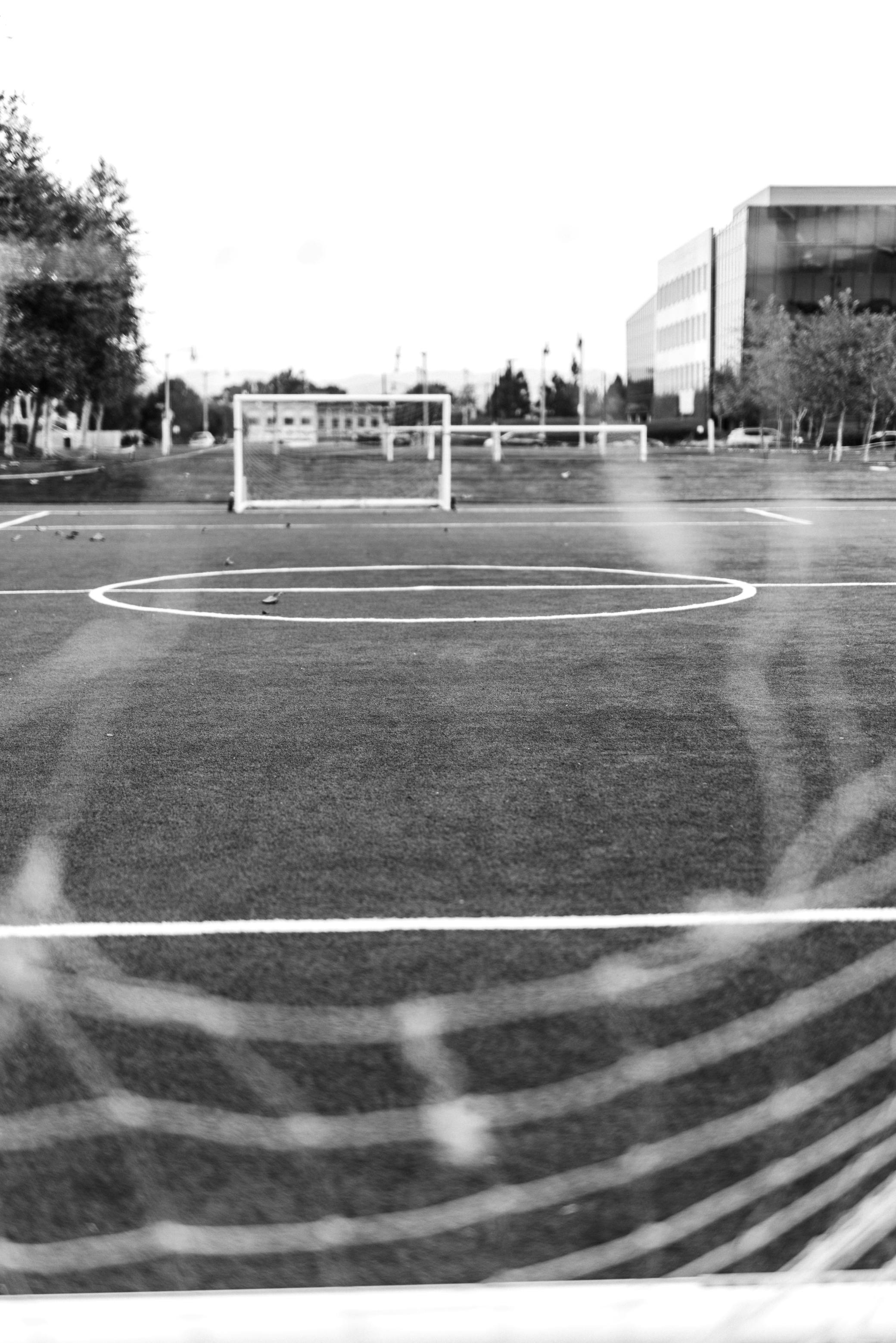Success in sport & social impact
An inclusive system that develops outstanding teams and athletes
Despite having a talent pool of just 350,000 people, Iceland’s sports model consistently produces teams and athletes who achieve international success, often outperforming nations with much larger populations and significantly greater financial investments in sports.
Iceland's Men football team reached the Euro's and World Cup
Smallest nation to qualify for both tournaments, putting Iceland on the global sports map and sparking international recognition.
Iceland's Women reached 8th place in the Fifa ranking
The smallest nation ever to reach the top 10, demonstrating Iceland’s commitment to gender equality in sports and the success of its development strategy.
Success across all popular sports
Iceland consistently achieves admirable results in its most popular sports (Football, Handball, Basketball, Gymnastics), reaching finals, winning medals, and qualifying for international tournaments.
Everyone should play: Philosophy
Neighbourhood clubs welcome everyone, from those pursuing excellence to those joining for social enjoyment. Everyone has a place with no tryouts required, enabling players to play with classmates and neighbours over years, driving long-term participation and cultivating a sense of community and belonging.
What was the motivation?
Teenage Substance Abuse: Action was needed
In the late 1980s and early 1990s, teenage drinking and substance abuse were major concerns in Iceland. Up to 40% of teens drank every weekend, and 25% smoked. Authorities recognised the urgency and took action to reverse the trend and safeguard youth.
Investing in Sport: Strategy for change
Municipalities, governing bodies, and thought leaders collaborated to analyse the situation and create strategies. State funding for sport programs, sport infrastructure and other leisure activities like music and art was increased, and the Municipal Grant was established offering families up to €500 / £420 (today) as a subsidy for recreational activities for each child.
Surge in youth sports participation
These joint efforts led to a significant rise in formal sports participation among children and teenagers. Nearly 70% of 14-15-year-olds now engage in organised sports, promoting physical, mental, and social well-being through accessible neighbourhood club programs.
Substance abuse plummets: Strong social impact
The results were extraordinary: substance use among children and adolescents plummeted, and in just 20 years, Icelandic teens became the cleanest in Europe. This stands as a powerful testament to how investing in sports and sports infrastructure is an exceptionally effective and proportionally cost-efficient way to transform the future of our younger generations, fostering happier, healthier lives.
Culture: Sport Matters
Organised sports participation is seen as essential for health and societal development. Participation is encouraged from a young age, with families investing time and fees for programs and tournaments. Sports facilities are abundant, accessible, and near homes. Governing bodies monitor program effectiveness and ensure transparency through data collection.
Do you want to find out more?
If you shape sport strategies and are passionate about social impact, we’d love to connect or link you with our partners and experts in the field and help you drive meaningful change through innovative solutions and collaboration.
